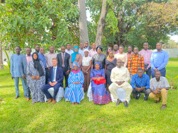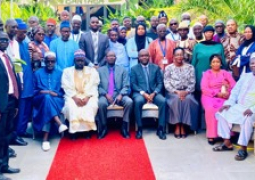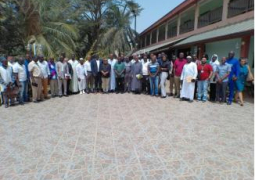
The law has been developed to look into the development of an institutional framework and typical issues as it relates to energy efficiency which includes gender-based streaming, financial mechanism, and ending corruption to ensure that energy efficiency is adequately and appropriately embedded in the business sectors.
Addressing the gathering, Amie Njie-Joof, permanent secretary at the Ministry of Petroleum and Energy (Mope), revealed that it had been observed that the beneficiaries of these services did not always use energy efficiently.
"This inefficient use of energy ranges from the use of inefficient appliances to using energy when not needed, such as leaving the air conditioner on when there is nobody in the office or room,” she said.
PS Njie-Joof reminded that considering the fact that resources are scarce and that energy (electricity) is not provided to every community in the country, the government had formulated a policy on energy efficiency and conservation, which “promotes efficient and wise use of energy” by every user, to save energy for use by others.
She pointed out that the interventions by the Government was to enhance the country's energy efficiency compliance with international standards, and the Bill to be validated was not only timely, but also apt as it indeed formed the bedrock for the country's energy management system.
Matarr Touray, an energy specialist at the World Bank, expressed the bank’s continued support towards the realisation of reliable, affordable, and universal access to electricity by 2025.
Read Other Articles In National News
ITC, partners launch Jokkalante project
Jun 15, 2023, 11:20 AM




